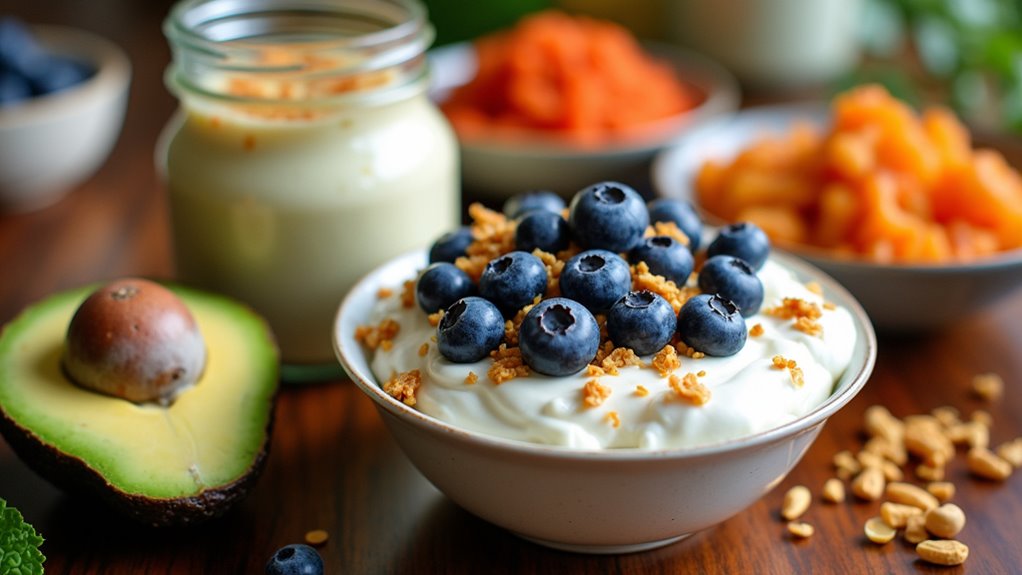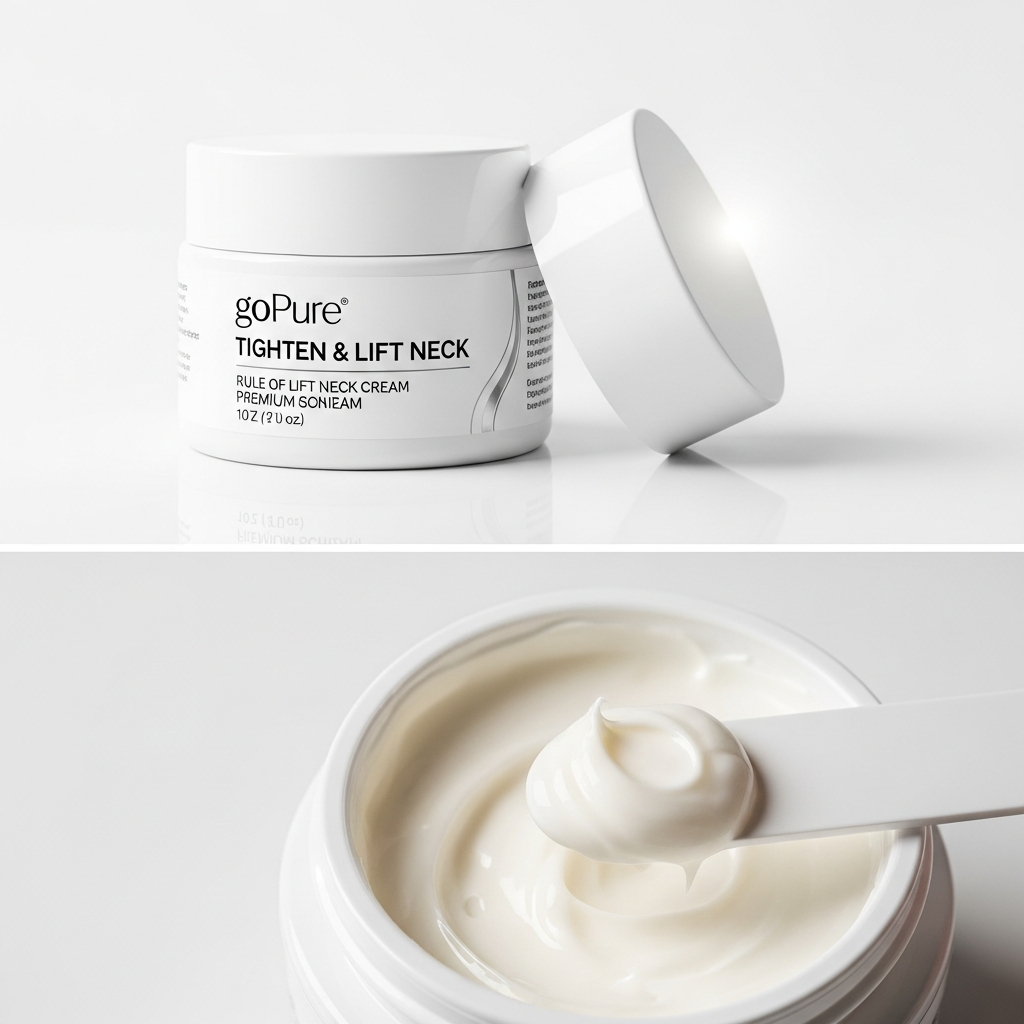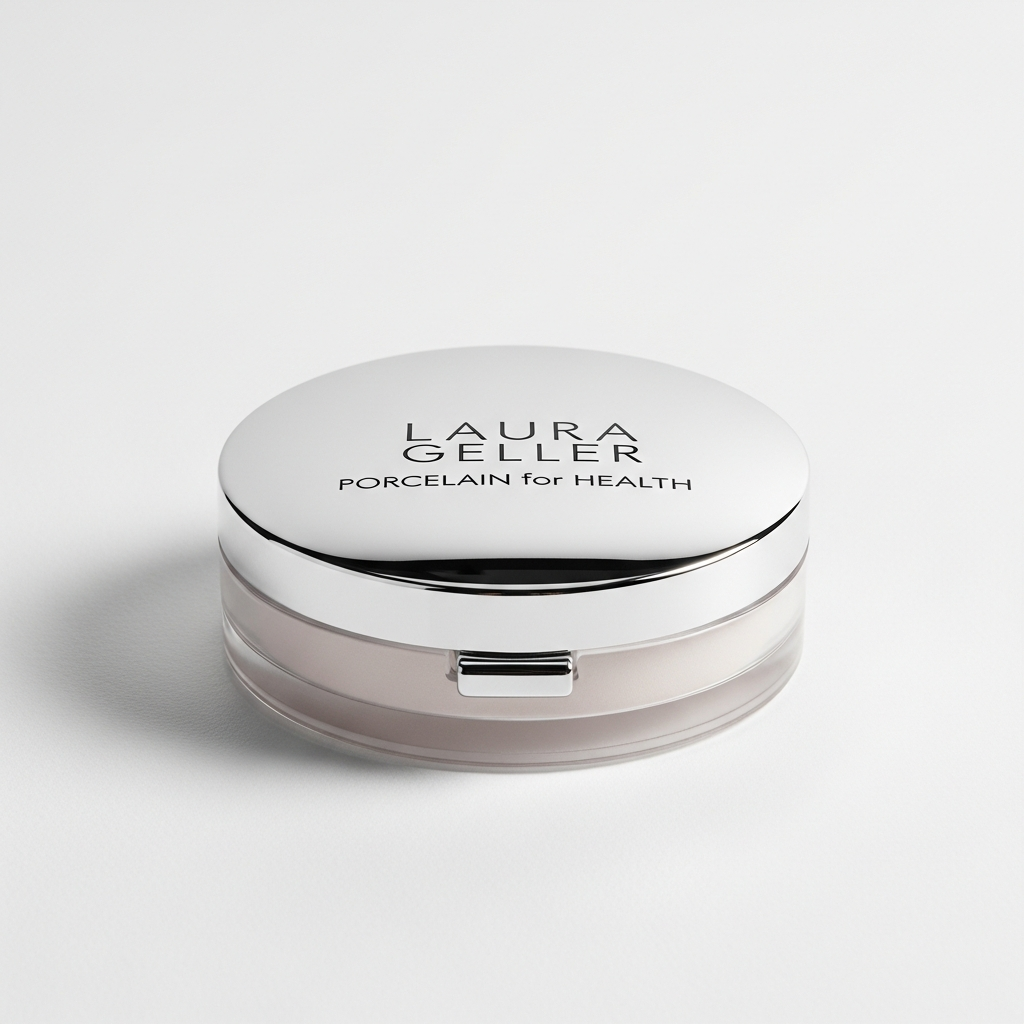On May 16, you have the perfect opportunity to focus on your gut health by embracing probiotic-rich foods. These foods can transform your meals and support your overall well-being. By incorporating items like yogurt, kefir, and kimchi into your diet, you can experience a range of benefits. But what exactly do probiotics do for your body? Let’s explore how they can make a significant difference in your health.
Understanding Probiotics and Their Benefits
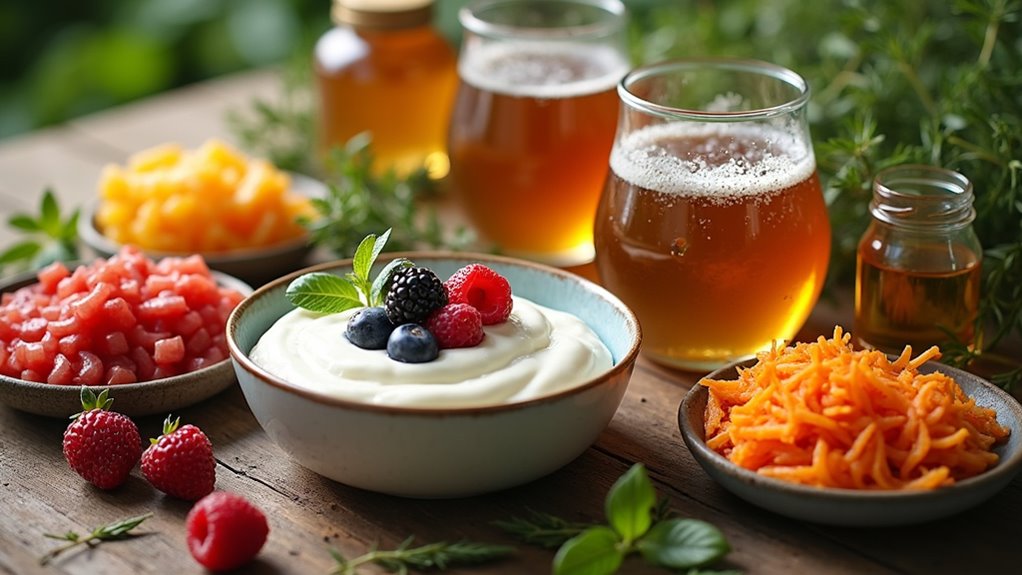
Understanding probiotics and their benefits can transform your approach to gut health. These live microorganisms play a crucial role in maintaining a balanced gut microbiome, which directly affects digestion, immunity, and overall well-being.
When you incorporate probiotics into your diet, you’re promoting the growth of beneficial bacteria that can help combat harmful pathogens and reduce inflammation. You might notice improved digestion, less bloating, and even enhanced mood as a result.
Probiotics can also support nutrient absorption, ensuring your body gets the vitamins and minerals it needs. By recognizing the importance of these tiny allies, you can take proactive steps towards a healthier gut, leading to a happier, more vibrant you.
Embrace the power of probiotics for a thriving digestive system!
Top Probiotic-Rich Foods to Include in Your Diet
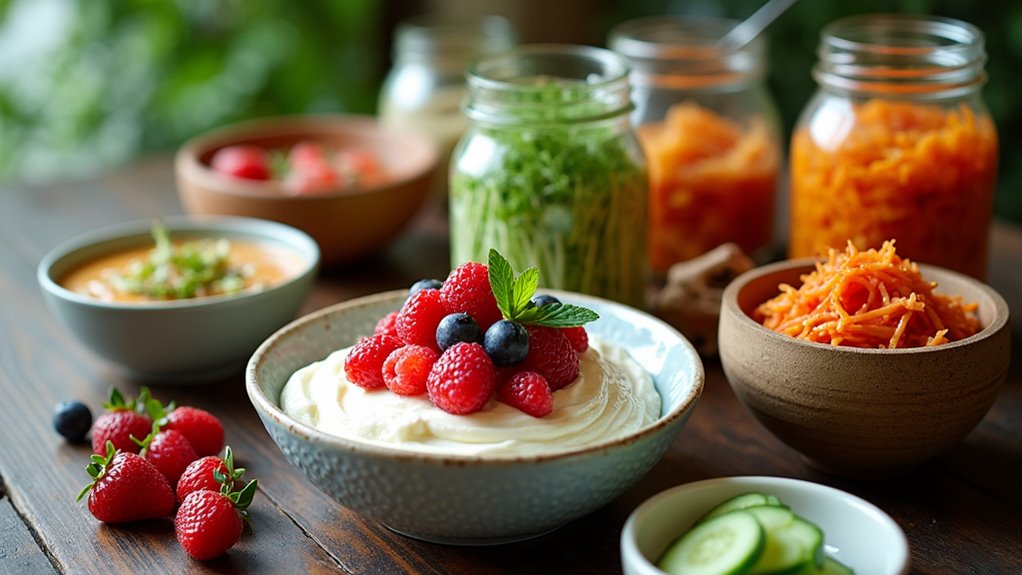
Incorporating probiotic-rich foods into your diet is a delicious way to boost your gut health. Start with yogurt, especially those labeled with live and active cultures. Kefir is another excellent choice, packed with beneficial bacteria.
Fermented vegetables like sauerkraut and kimchi not only add flavor but also provide a probiotic punch. Miso and tempeh, both made from fermented soybeans, are great for adding depth to meals.
Don’t forget kombucha, a fizzy tea that’s both refreshing and gut-friendly. If you’re looking for a snack, try some pickles made through fermentation.
How Probiotics Improve Digestive Health
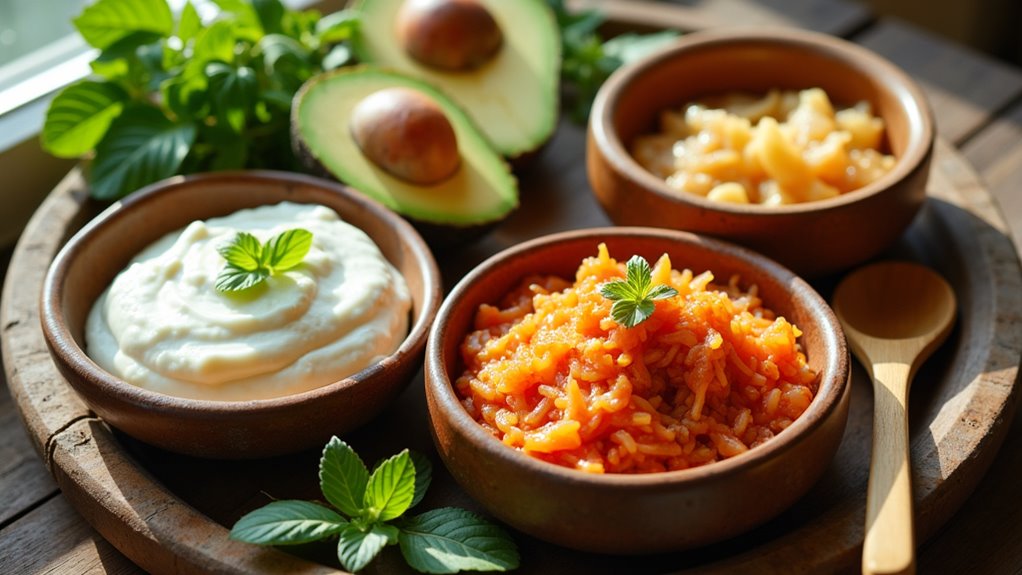
When you consume probiotics, you’re not just enjoying tasty foods; you’re also supporting your digestive health in significant ways.
These beneficial bacteria help balance your gut microbiome, which plays a crucial role in digestion. By enhancing the breakdown of food, probiotics can reduce symptoms like bloating and gas, making meals more comfortable.
They also promote regular bowel movements, helping to prevent constipation and diarrhea. Probiotics may even aid in the absorption of nutrients, ensuring your body gets the vitamins and minerals it needs to function optimally.
Plus, they can mitigate the effects of stress on your digestive system. Incorporating probiotic-rich foods into your diet is a simple yet effective way to boost your overall digestive wellness.
The Role of Probiotics in Strengthening Immunity
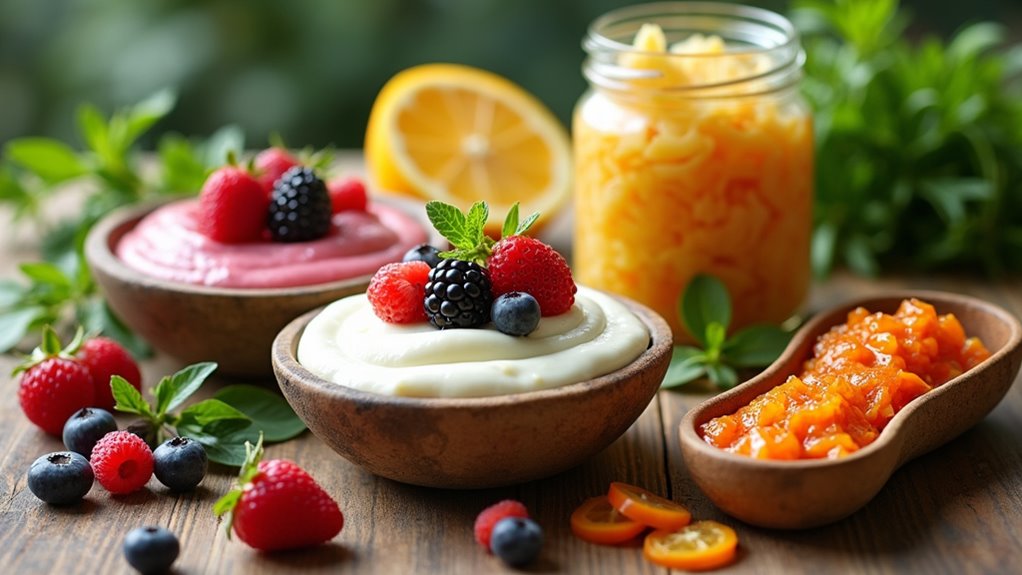
Probiotics do more than just support digestive health; they also play a pivotal role in strengthening your immune system. When you consume probiotic-rich foods, beneficial bacteria populate your gut, enhancing your body’s defenses against pathogens.
These friendly microbes help maintain the balance of your gut flora, which is crucial for optimal immune function. They also produce substances that inhibit harmful bacteria and viruses, reducing your risk of infections.
Furthermore, probiotics can boost the production of antibodies and stimulate immune cells, making your body more resilient. Incorporating yogurt, kefir, sauerkraut, or kombucha into your diet can significantly improve your immunity.
Probiotics and Mental Health: A Surprising Connection
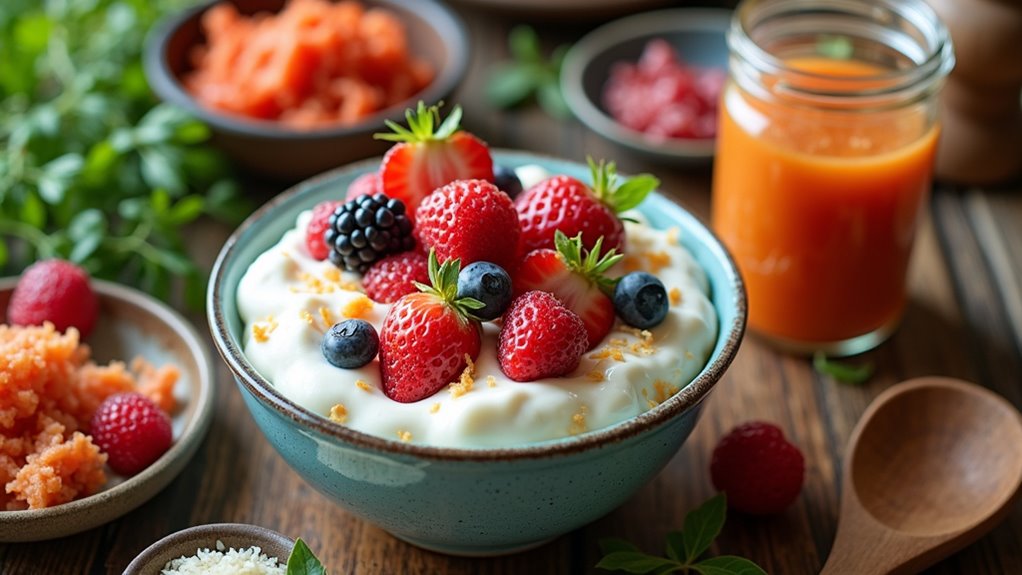
While many people associate probiotics solely with gut health, emerging research reveals a surprising connection between these beneficial bacteria and mental well-being.
You mightn’t realize that your gut and brain communicate through the gut-brain axis, which means a balanced microbiome can influence your mood and cognitive function.
Studies suggest that certain probiotics may help reduce symptoms of anxiety and depression, making them a potential natural remedy for mental health issues.
By nurturing your gut flora, you could enhance your overall mood and emotional resilience.
So, the next time you think about probiotics, remember that they mightn’t just support your digestion but also boost your mental clarity and happiness.
Embracing this connection could lead to a healthier you, both physically and mentally.
Easy Ways to Incorporate Probiotics Into Your Meals
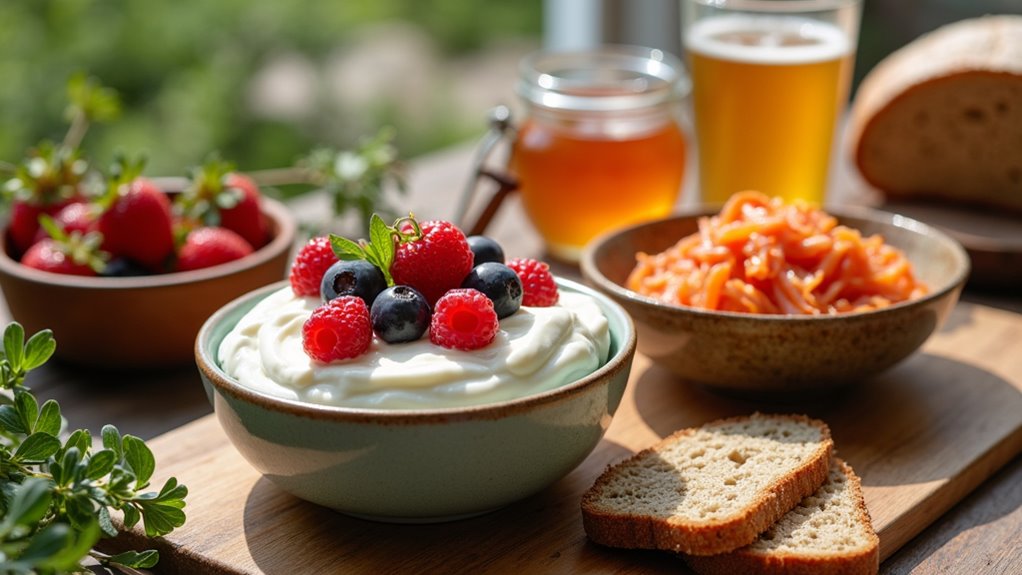
Incorporating probiotics into your meals can be both simple and delicious, enhancing your health without sacrificing flavor.
Start your day with a yogurt parfait, layering your favorite fruits and granola for a tasty breakfast. For lunch, add kimchi or sauerkraut to your salad or sandwich to boost its probiotic content.
When preparing dinner, consider a stir-fry with miso paste, which not only adds depth but also delivers beneficial bacteria. Don’t forget to swap your regular dressings for kefir-based options to keep meals creamy and probiotic-rich.
Snacking on fermented foods, like pickles or olives, is another easy way to enjoy probiotics. With these tips, you can effortlessly include probiotics and enjoy a healthier gut.
Homemade Probiotic Foods: Recipes to Try
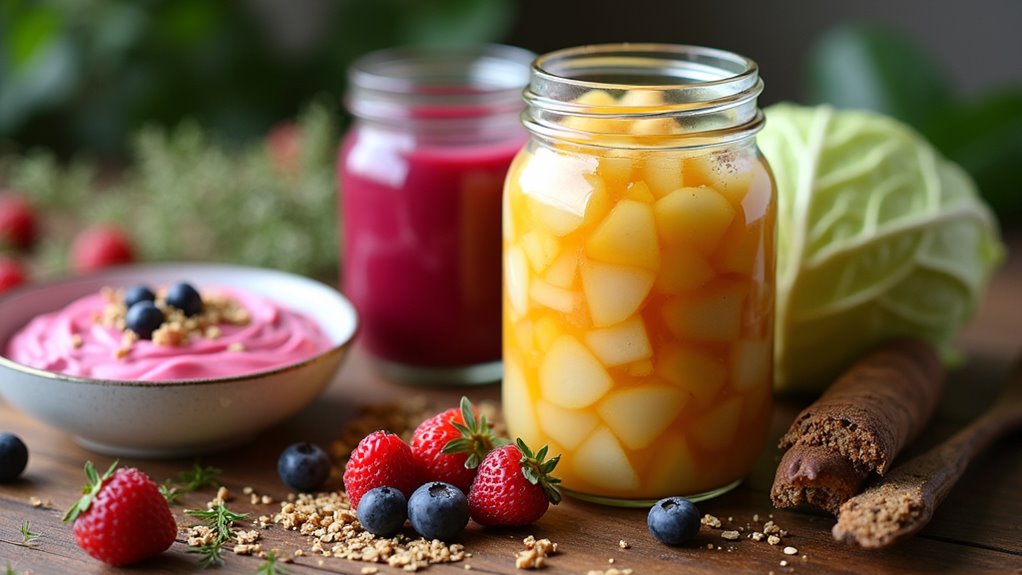
If you’re looking to boost your gut health, making homemade probiotic foods can be a rewarding and fun experience.
Start with yogurt; all you need is milk and a yogurt starter. Heat the milk, cool it, add the starter, and let it ferment for 6-12 hours.
Try your hand at sauerkraut by shredding cabbage, mixing it with salt, and letting it ferment in a jar for a few weeks.
For a delicious drink, brew your own kombucha by fermenting sweetened tea with a SCOBY.
Lastly, whip up some kimchi by combining napa cabbage, radishes, garlic, and spices, then fermenting for a few days.
These recipes not only enhance your meals but also promote a healthy gut!
Potential Side Effects of Probiotics
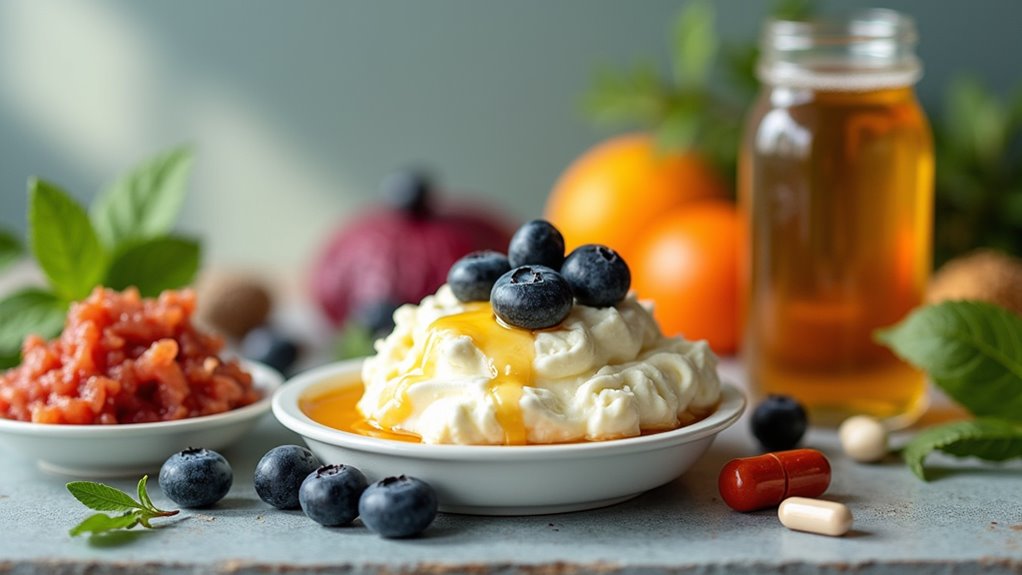
Although probiotics are often celebrated for their gut health benefits, they can also lead to some potential side effects. You might experience mild digestive issues like gas, bloating, or diarrhea when you first start taking them.
These symptoms usually subside as your body adjusts, but they can be uncomfortable. In rare cases, particularly for those with weakened immune systems or underlying health conditions, probiotics may cause more serious reactions, such as infections.
It’s essential to listen to your body and consult a healthcare professional if you’re unsure about adding probiotics to your diet. Monitoring your response to these foods can help you enjoy the benefits while minimizing any adverse effects.
Tips for Choosing the Right Probiotic Supplements
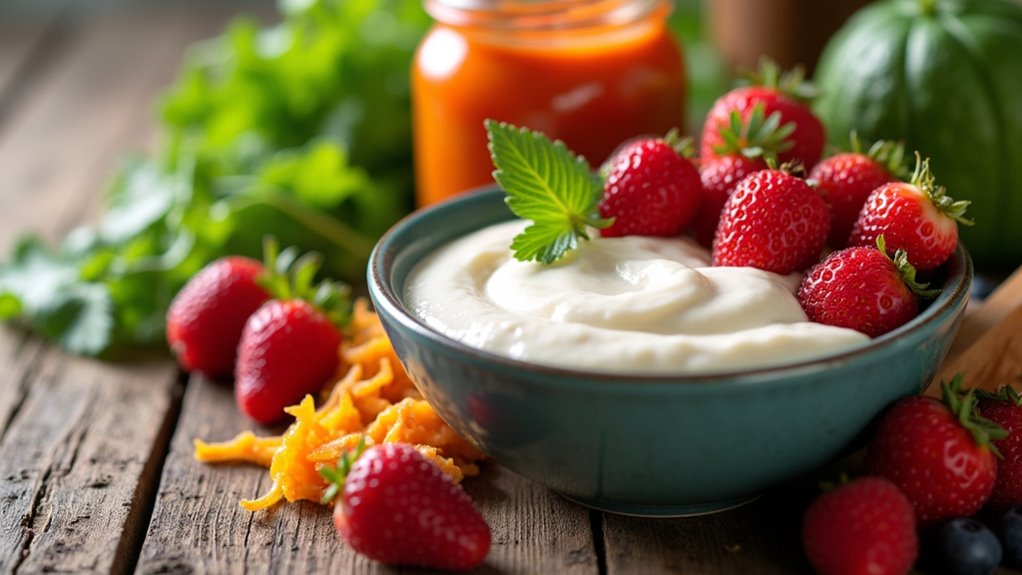
Finding the right probiotic supplement can be overwhelming, especially after considering the potential side effects they may cause.
To simplify your decision, start by checking the strains included. Look for specific strains backed by research, like Lactobacillus or Bifidobacterium, tailored to your needs.
Next, pay attention to the CFU count; higher isn’t always better, but aim for at least 1 billion CFUs.
Check the expiration date to ensure potency and avoid expired products.
Additionally, consider whether you prefer capsules, powders, or gummies based on your lifestyle.
Lastly, read reviews and consult a healthcare professional if you’re unsure.
These steps can help you choose a supplement that promotes a healthy gut without unnecessary complications.
Conclusion
Incorporating probiotic-rich foods into your diet is a simple yet powerful way to enhance your health. By enjoying yogurt, kefir, sauerkraut, and kimchi, you’re not just treating your taste buds; you’re also nurturing your gut and boosting your immunity. Remember, a happy gut contributes to overall well-being. So, embrace these delicious foods and make them a regular part of your meals. Here’s to a healthier, happier you—one bite at a time!
